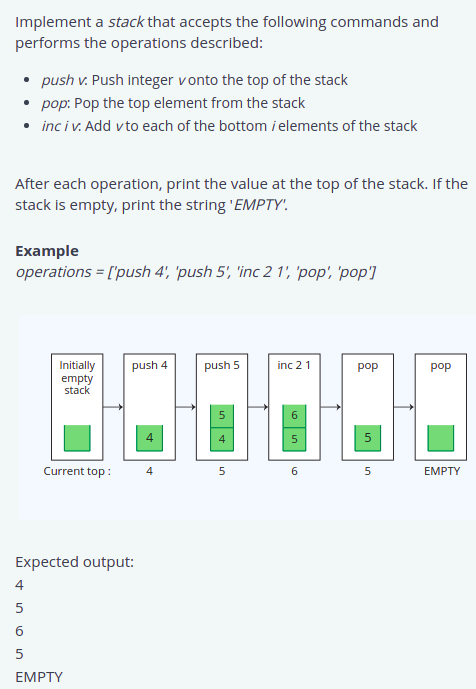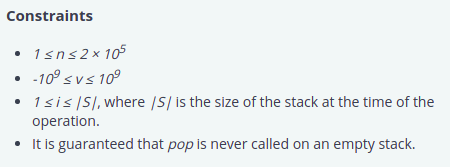I'm solving a problem on HackerRank where I'm required to implement a simple stack.
It's passing all the tests except for the last 4 where it fails due to surpassing the time constraint of 10s. These 4 failing tests are running 200,000 operations on the stack.
How can I optimize my code below:
# operations of the form ['push -36', 'pop', 'push 16', 'pop', 'inc 1 -17', ...]
from collections import deque
def superStack(operations):
def push(v):
S.append(int(v))
def pop():
return S.pop()
def inc(i,v):
i, v = int(i), int(v)
for pos in range(i):
S[pos] += v
S = deque()
funcs = locals()
for operation in operations:
op, *args = operation.split(' ')
funcs[op](*args)
print(S[-1] if S else "EMPTY")
A few notes:
Some constraints:
I've chosen
dequeoverlist, to avoid the "contiguous memory block" problem that lists may encounter.Since
popandappendare both O(1), the heaviest operation is theinc(especially so ifiis large). So I keep all items as integers to avoid conversion from string to int multiple times in theincloop


